While do-it-yourself projects can be fun and fulfilling, there is always a potential for personal injury or property damage. We strongly suggest that any project beyond your abilities be left to licensed professionals such as electricians, plumbers, and carpenters. Any action you take upon the information on this website is strictly at your own risk, and we assume no responsibility or liability for the contents of this article.
Planning for the Upcoming Camping Season
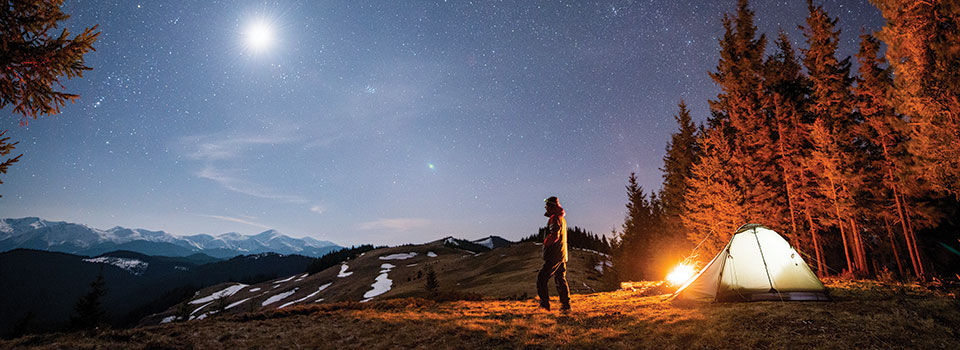
Camping doesn’t just get the whole family outdoors. It can also help reset your natural sleep cycles and encourage a deeper connection to nature. However, camping trips go best when you do plenty of preparation and planning well in advance. Bringing the right gear and knowing the gear you pack is in good shape are the keys to spending a weekend or longer away from the comforts of home. Winter and early spring aren’t a great time for camping out in most climates, but they do provide the time for planning and preparing for the upcoming season. Try these tricks to make sure you’re ready for the first warm weekend of the next camping season.
Checking and Replacing Your Gear
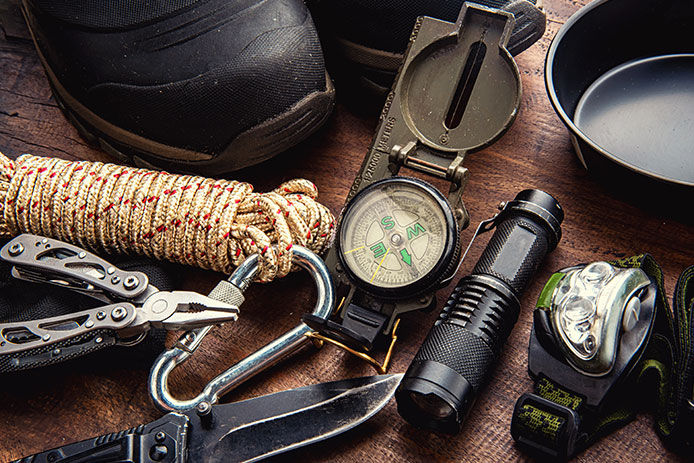
Winter is a perfect time for discovering your favorite tent is beyond patching or that the backpack you’re not a fan of deserves replacement. Camping gear tends to be in full stock and at lower prices in the off-season than during peak demand. Tents, hiking gear, and cooking equipment tend to go out of stock in the late spring, particularly as everyone rushes to get outside. You can pick out exactly the gear you want for the next year and take advantage of deals or sales by getting ahead of the game. This is even true for buying used camping gear, which is often listed for sale over the winter when the current owners realize they need more storage space. It’s also a great time for finding new tech like solar rechargeable lanterns, the Aeropress for quick single-serving coffee, or GPS-tracking headlamps to keep you from getting lost.
Upgrading and Practicing Camping Cooking
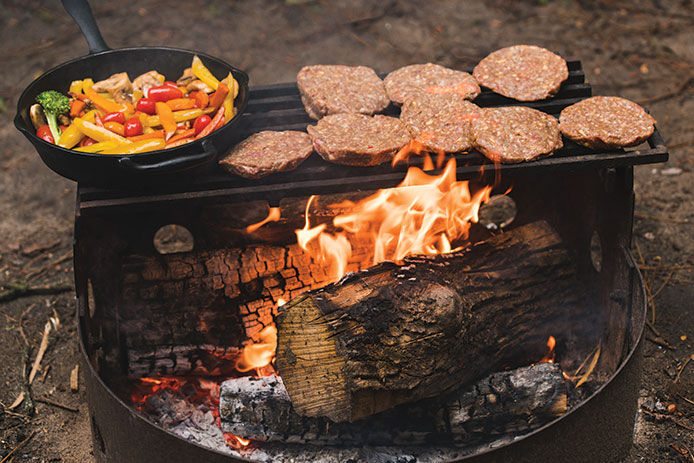
Food and the cooking experience are often the weakest part of a camping trip. If you’re trying to win over new converts to camping who are used to dining out rather than around the fire, getting some new camp cooking equipment may help. There’s no need to settle for the same old basic propane stove when there are specialty appliances available to cook almost anything you like while on the go. From portable ovens to deep fryers that rely only on a small fuel canister, there’s no need to stick to a limited meal plan of trail mix and cold sandwiches, even on a short trip. If you prefer open-fire cooking, there are special baskets, forks, and coal-resistant pans that make this type of cooking a breeze. Either set up your new camp gear in the backyard or try out some techniques on a fire pit to enjoy the cool air without having to commit to a whole winter camping trip.
Making Checklists for Your Gear in Particular
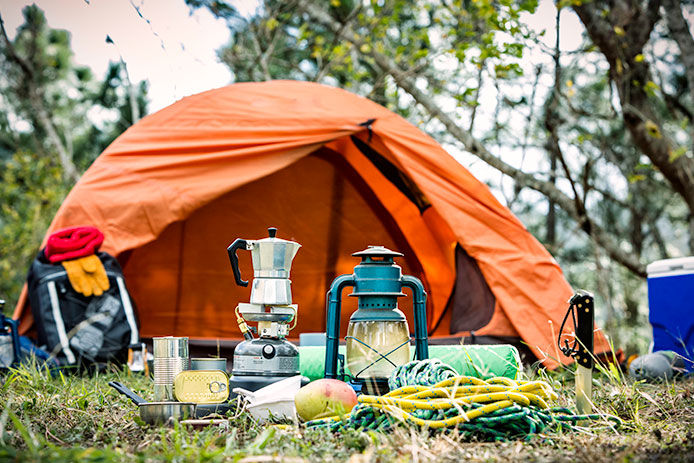
Camping checklists are a dime a dozen on the internet, but many of them are too general to really cover the important stuff you’ll miss when in the outdoors. Each climate requires a different approach to camping, and someone who prefers to go ultralight and use a hammock will need a completely different checklist than a luxury RV camper. Try starting with a general list of camping items and then adjusting the checklist with your particular gear in mind. If you camp with an RV or other equipment that requires a specific setup process, make sure to write a checklist for setup and takedown as well.
Planning for Campground Access
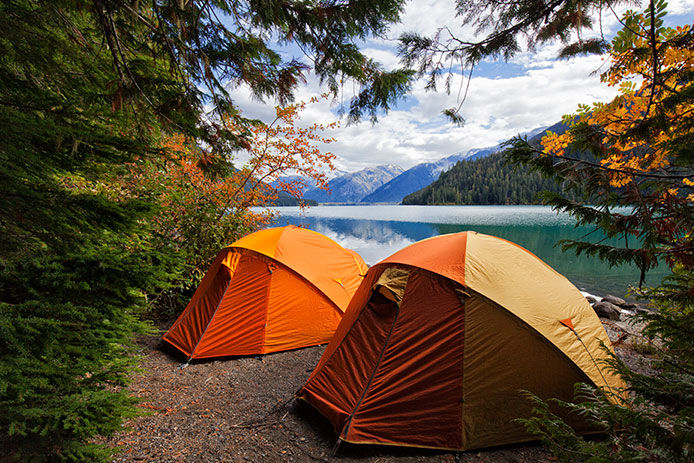
Not all campgrounds are open yet, between natural disasters, wildfires, and limited funding. Both private and public campgrounds may not be available for the next year or longer. Before assuming you can visit the same old spots you’ve loved for years, check up on new requirements or restrictions on access. Many National Park, National Forest, and U.S. Army Corps of Engineers sites, in particular, are reducing the amount of traffic they receive per year in order to reduce the environmental impact. It may be time to explore new camping spots that have only recently opened.
Dewinterizing RVs and Campers
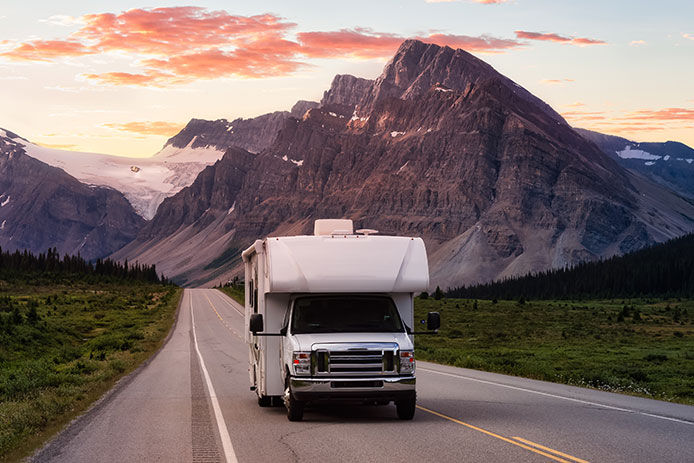
Even when stored in climate-controlled facilities, RVs and campers require maintenance in the winter to keep them in good shape. This generally involves draining fluids out of the engine, water systems, and holding tanks. Leaving water in the lines can result in freezing, while RVs generally need fresh fuel and coolant each spring before they’re used. Of course, this means that RVs and campers need de-winterizing when spring arrives again each year. The basic procedure involves:
- Flushing the antifreeze out by attaching a water hose to the inlet valve and running a few gallons through all the taps
- Closing the open taps and faucets
- Closing the drains and drain plugs
- Pouring a quarter cup of bleach into the freshwater tank for every 15 gallons it holds
- Switching the water pump and water heater back on
- Running water through the faucets and shower until the bleach can be smelled before flushing the tank again with another fresh change of water
- Replacing and charging any batteries required
- Attaching propane tanks removed and stored separately for the winter
- Replacing curtains and cushions stored separately
- Refilling any coolants, lubricants, oil, and fuel for engines and generators.
Camping can be as simple as setting up a tent for a night or as complicated as weeks spent in an RV. Try making this next season the year you try to fulfill all of your outdoor exploration dreams. Invest in some new gear in the off-season and practice setting it up so that you’re ready for the backwoods or just the RV park that you’ve got your heart set on.